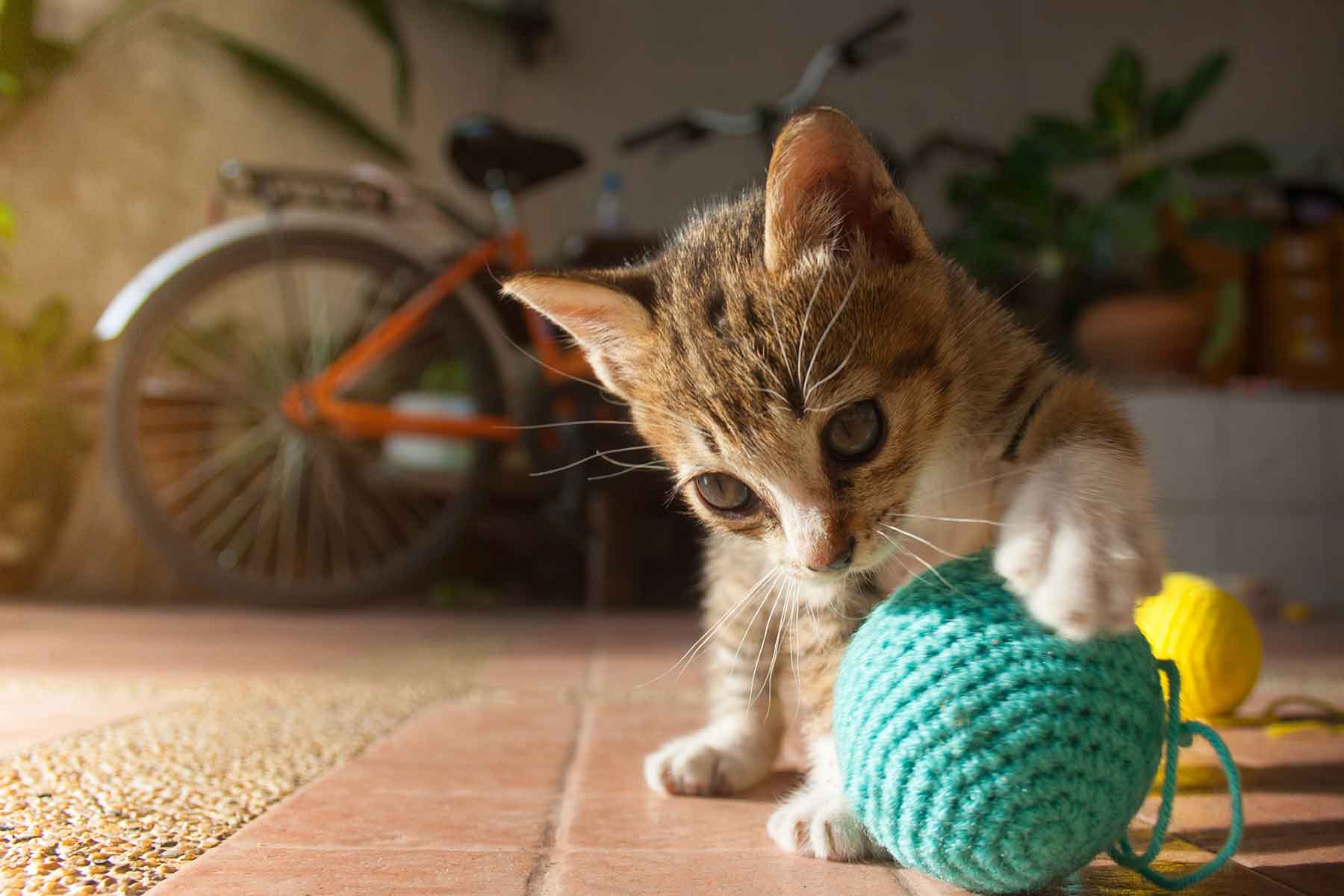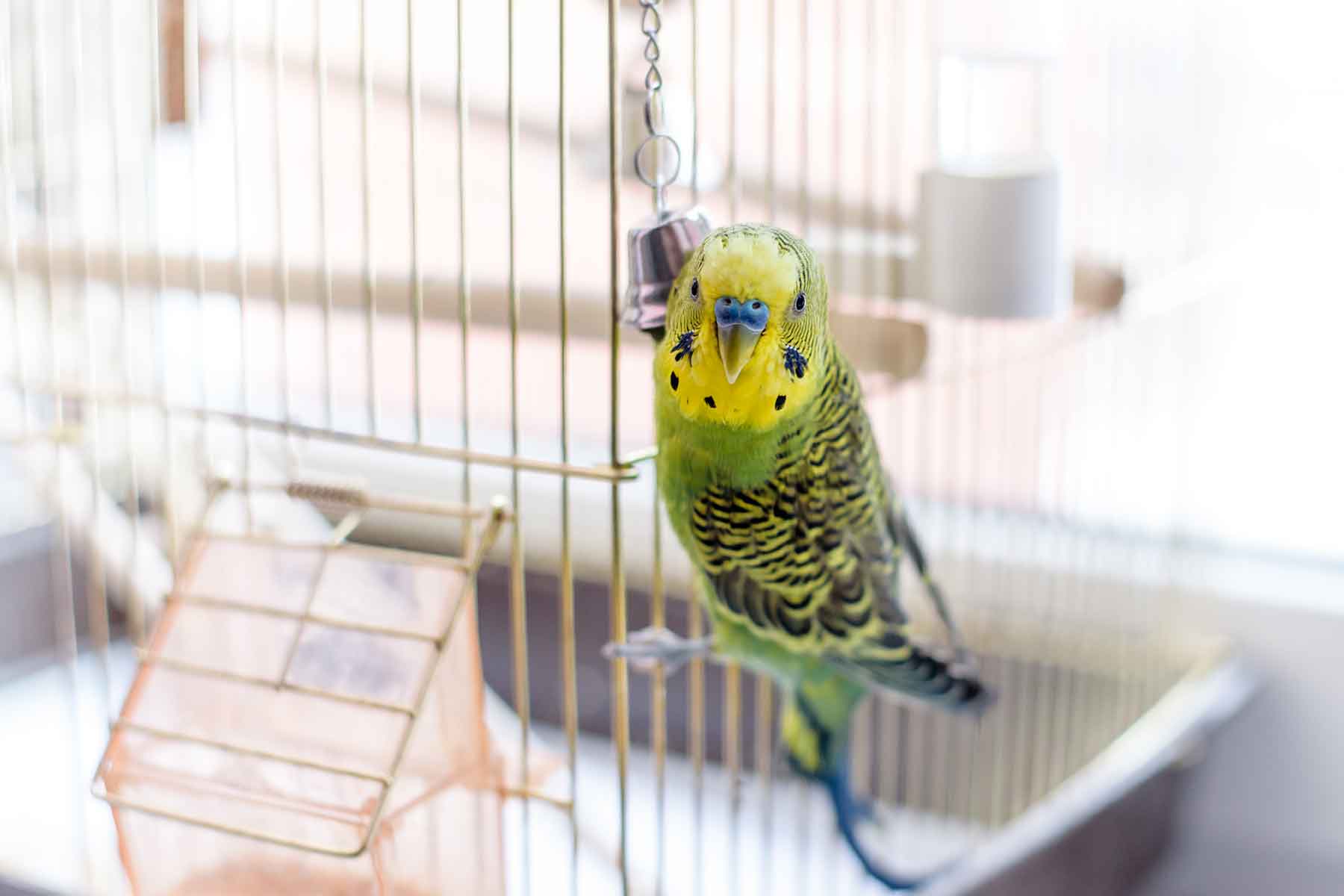Congratulations on the new furry addition to your family! Getting a kitten is an exciting time and you want to make sure your kitten adjusts well to your home. Read through the following information for advice on caring for your kitten, and making sure they get off to a healthy start.
Bringing Your New Kitten Home
Your kitten may act timid and apprehensive when they first arrive home. This can be due to the fact they are experiencing a new environment for the first time, and are missing their littermates and mother. Allow your kitten to explore their new home at their own pace, without too much interference or noise. Remind children that your kitten may need quiet time to rest while they get used to their new home. Other family pets should be introduced after a period of time, individually, and under close supervision.
What Is The Best Bed For A Kitten?
Provide your kitten with a warm comfortable place to sleep, such as a designated bed, basket, or box to curl up in. They will be used to sleeping closely with their littermates so be sure the new bed is cosy and inviting. Your kitten may miss their littermates and cry for the first couple of nights, so consider adding a hot water bottle in their bed for extra warmth and comfort. Ensure the water bottle is not too hot in case of accidents during the night – kittens are curious!
If you prefer that your kitten sleeps in your bedroom, we recommend keeping them in their own bed on the ground until they are older. You kitten may find it difficult navigating around the house, and can fall off the bed and injure themselves. It is best to start your kitten in a secure place with easy access to water until they are old enough to not accidentally injure themselves.
What To Feed Your Kitten
Your kitten has specific nutritional requirements that differ from adult cats. They should be fed a complete and balanced diet that caters to their specific life stage requirements. We recommend premium brand kitten biscuits, made from high quality ingredients, that will provide all the nourishment your kitten needs without the need for any supplementation.
Kittens can regulate their food intake well and so meals can be offered often but it is alright to leave a few biscuits out at all times for your kitten to eat. Two or three main meals spread throughout the day are best with kitten biscuits available at any time. Be sure to always have water freely available.
Any changes to the diet should be made gradually, transitioning to the new food slowly over a period of days. Sudden diet changes are a common cause of diarrhoea in kittens.
How Can I Entertain My Kitten?
Your kitten will be playful and want to explore many things in your home. Environmental enrichment is essential in order to focus your kitten’s attention on appropriate objects. Be sure to provide lots of different kinds of toys and items to chew on, such as lattice balls, furry mice, feathered toys on strings – all of these will stimulate your kitten and help them develop their coordination. We recommend a cat scratching post and lacing it with catnip in order to teach your kitten where scratching is ok behaviour from an early age. Here are some tips and tricks to entertain your kitten at home.
House Training Your Kitten
Many kittens will already be litter box trained by the time you get them home. Kittens quickly learn this behaviour from watching their mothers and other cats.
However, accidents can happen, so you should watch your kitten and prevent accidents from occurring. Your kitten will need to eliminate often, so be sure to take them to the litter tray after sleeping, eating, and last thing before bed. Praise your kitten for using the litter box. NEVER punish your kitten after accidents. A kitten is too young to connect the punishment with the accident, and can instead develop fear towards an owner. Using praise is the best method of training. Read more about cat toileting here.
Kitten Socialisation Tips
Peak socialisation time in your kitten’s life is before 14 weeks of age. By 7-8 weeks old, your kitten has developed good paw and eye coordination, and social play develops between 6-12 weeks. Expose your kitten to new lots of experiences so they become accustomed to many things from an early age. During this early time, kittens are often receptive to learning tricks – food rewards work best when training kittens. Fearful play and fighting behaviour can start after 14 weeks, so be sure to handle your kitten as much as possible before then.
Registering Your Kitten
Your kitten must be microchipped and then registered with your local council. The microchip is implanted under the skin over the shoulder blades, and can be done during a vet consultation or at time of desexing. The microchip is able to be read by specialised scanners which reveal your pet’s unique number. This number will be used to access your contact details from a national database, and can serve to re-unite you with your cat should they ever become lost.
Kitten Healthcare
If your kitten appears listless, lethargic, off their food, or if you have any concerns about your kitten’s well-being, please contact your local Vetwest team.
Vaccination
To safeguard your pet from potentially serious and sometimes fatal diseases we recommend vaccinations. Cats are vaccinated against:
- Feline Enteritis – This is the most common life threatening disease affecting cats. It is a very contagious viral disease with a high death rate especially in cats under 12 months of age. Signs include fever, depression, severe stomach pain, vomiting, diarrhoea and dehydration.
- Feline Respiratory Disease (Cat Flu) – This is a highly contagious disease. Cats of all ages are at risk, especially young kittens, Siamese and Burmese cats. Signs include sneezing, nasal discharge, runny eyes, coughing, loss of appetite and tongue ulcers. This can lead to severe dehydration followed by death.
- Feline Chlamydia – Chlamydia is an organism that causes eye disease, predominantly seen in kittens up to 9 months of age. The signs of infection are discharge from the eyes (sticky eye or conjunctivitis) and nose, fever, coughing, respiratory signs, enlarged lymph nodes, inappetence, weight loss and depression. Chlamydia is found in up to 1/3 of cases of conjunctivitis and is transmitted by close and persistent contact between cats.
- FIV Feline Immunodeficiency Virus – This blood borne viral infection causes feline AIDS which is potentially fatal. Vaccination is available and will be recommended by our veterinarians if your cat is considered to be at risk. The virus interferes with the immune system and initial symptoms such as fever, sores, lesions and diarrhoea progress to severe chronic infections as the immune system is overcome. There is no treatment or cure for the virus itself.
Read more about feline diseases here.
Your kitten will require a course of three vaccinations:
- 8 weeks First Vaccination – Temporary
- 12 weeks Second Vaccination
- In some case, a 16 week vaccine may be required
- 10 days after the final vaccination your kitten can go outside and socialise with other cats.
To maintain immunity, all adult cats require an annual vaccination booster for life – find out more about vaccinations and book an appointment with a vet near you.
Desexing
As well as reducing the number of unwanted kittens, desexing prevents pets from roaming, fighting, spraying and night prowling, which are particularly common behaviours in males. Cats can be desexed at any age however the optimum time for desexing is 5-6 months of age when a cat is approaching sexual maturity but before the first ‘heat’ in females. However, it is never too late to desex your cat.
In both females and males desexing is a day procedure performed under general anaesthesia. This means your cat will be admitted first thing in the morning and discharged in the evening of the same day. The procedure itself involves removal of the ovaries and uterus in females and the testicles in males.
Find out more about the benefits of desexing and the process involved.
Dental Care
Teeth cleaning and gum massage are very important and probably best achieved by supplying your kitten with the appropriate things to chew on. This helps exercise the teeth and gums and helps to prevent boredom. A well balanced diet, regular check ups and brushing will assist in maintaining good dental health.
We can assist in preventing dental disease with a free dental check up to ensure you and your pet are on the right track – book in an appointment today at a vet clinic near you.
Heartworm
Mosquitoes spread heartworm when they bite. A cat affected by heartworm will have an infestation of long thin worms (up to 30cm in length!) lodged in the heart and vessels that feed on surrounding blood. There is no approved treatment for feline heartworm disease so prevention is essential to give your cat the best chance of a long and healthy life.
Prevention is possible using a monthly ‘spot-on’ on the skin. Kittens should be started on prevention from 12 weeks of age. Learn more about heartworm disease and treatment.
Flea Control
If there are fleas about, they will find a way onto your cat’s coat and soon invade your home too. There are excellent flea control products available that are safe, effective and easy to use. These are administered in a variety of ways. Use flea control products specifically designed for cats. Some common flea control products made for dogs are extremely toxic in cats! Our veterinary healthcare team can provide you with more detailed information about effective flea control and you can also read more about fleas.
Worming
The most common intestinal worms affecting cats in Australia are roundworm, hookworm, and tapeworm. Worms are a common cause of ill health in pets and can result in a loss of appetite, vomiting and diarrhoea.
To protect your cat, common worms can be easily controlled with a routine worming treatment. Kittens need to be wormed every two weeks until twelve weeks of age, then monthly until six months of age. After six months all cats need to be wormed every three months for effective protection. Read more about worms and your cat.
Medication
DO NOT give unprescribed medications to your cat without checking with a vet first. Even aspirin and paracetamol can be dangerous if given incorrectly, especially if your pet is on medication or has a medical condition. Only use medication that has been prescribed by the vet and follow the instructions specified for your cat.
Once again, congratulations on your new addition and please feel free to call our hospitals should you require additional information, guidance or advice about raising your kitten.
Total Wellness Plan
Do you want to save on pet care all year round? Take the stress out of caring for a kitten and enjoy greater convenience and peace of mind with the Total Wellness Plan. Depending on the plan you choose your furry companion will receive their annual vaccination, monthly parasite control delivered direct to your door, unlimited consultations* and more.
*For Classic plan members only.











